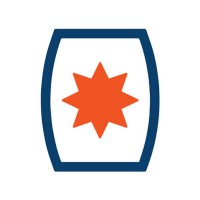 So you know how Verge is a place for “badass startups?” Well, this one is pretty badass because tackling this issue takes guts.
So you know how Verge is a place for “badass startups?” Well, this one is pretty badass because tackling this issue takes guts.
Dyslexia is the most prevalent learning disability in the world. 1 in 5 suffer from it, and those numbers are even higher in creative and entrepreneurial fields. Despite this, there is no good tech for treating dyslexia. Enter Kris Parmelee.
After spending years as a fundraising consultant raising three boys, Kris has set off on her own to tackle dyslexia with technology. The tech is so cool and the solution is so big that Kris and the DCODIA team has been invited to be one of our “first three” pitches for this year’s Innovation Showcase. This means that Kris will be pitching in front of our VIP crowd next Thursday at the Indianapolis Motor Speedway. So what exactly makes Kris and her crew so badass?
The Badass Basics
Company: DCODIA
Founder: Kris Parmelee, President and CEO, formerly a fundraising consultant
How It All Began: Kris has three children, including an 11 year old son named Sam. Sam is dyslexic,and through the years Kris has spend a lot of time and money on getting Sam the resources he needs to succeed. Most often, these resources come in the form of tutoring or specialized assistance on testing. Kris believed that there was a better, more efficient way to handle the challenge of dyslexia.
“After years and years of searching and coming up empty handed, I decided to just create the technology I was searching for.”
So What is Dyslexia?
There are a lot of misconceptions about dyslexia because it’s hard to describe this phenomenon to a non-dyslexic. Because of this, many people end up discounting dyslexia for the challenge that it truly is.
In her pitch on the Verge stage, Kris did a great job of putting these misconceptions to bed. A slide appeared with several variations of the word “cat,” including letters that were jumbled, upside down, and backwards.
“This is how my son sees the word ‘cat,'” Kris said, “There are three letters, but he can see up to 40 different combinations and only one of them is right.”
Compounding the issue is how widespread dyslexia is. 1 in 5 individuals has dyslexia, and it is even more prevalent in creative and entrepreneurial fields.
How The Hell Can Tech Tackle Dyslexia?

“The problem is that there is no assistive technology specifically designed for kids who have dyslexia who can move from classroom to classroom with the kid.”
So how can tech solve this problem? We’ve already seen technology that can read newspapers and articles out loud to the visually impaired, but that’s not a long-term solution for dyslexics who want to know how to read.
Kris had an idea. What if you could build an app that students could use inside and outside of the classroom that wouldn’t just read selected words to students who struggle, but also track the words that the student most commonly needs assistance with?
Tutors who specialize in working with dyslexics will note that more often than not, a student will have specific letter combinations that trip them up, and those combinations are different for everyone.
Maybe one student struggles reading words with an “ea” vowel combination while the student next to him consistently mixes up “b” and “d.” The way we’ve treated dyslexia for years has been built around highly trained tutors testing to find these combinations so that they can treat them.
What if instead a student could seek help immediately when they need it and that tool could report back to their teachers, parents, and tutors to identify the areas this student needs the most help?
That’s the value of DCODIA. Not only is this an app that can help dyslexics in the classroom, but it has the ability to make remediation more effective by using a data-driven approach to tackling this learning difference.

We’re extremely excited to invite Kris and the DCODIA team to the Indianapolis Motor Speedway to pitch in front of our VIP’s and Speedway CEO, Mark Miles. Did you see the DCODIA pitch in April? What would you like to see next week that you didn’t see there?


